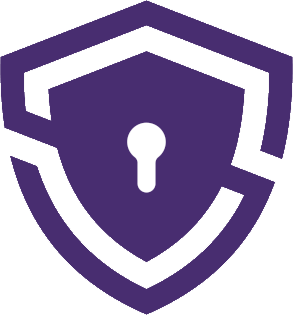There are several ways to get a VPN on a school Chromebook. These range from using a Chrome extension, installing an Android VPN app, or manually configuring the built-in VPN.
3 methods of getting a VPN on a School Chromebook
Use a VPN Using Chrome Extension on Chromebook
One of the easiest ways to install a VPN on a school Chromebook is through the Chrome Web Store. Many top-tier VPN services offer Chrome extensions that can be installed and used with just a few clicks.
Here is a step-by-step guide:
- Launch the Chrome Web Store on your Chromebook.
- In the search bar, type the name of your preferred VPN.
- Click on ‘Add to Chrome’ next to the VPN extension.
- After the extension is installed, click on the extension icon in the Chrome browser.
- Follow the on-screen instructions to connect to the VPN.
Remember, a VPN extension will only protect the data transmitted via your Chrome browser. To protect the data from other applications on your Chromebook, you’ll need to install a VPN app or manually configure a VPN.
Via Android VPN Apps
The integration of Android apps on Chromebooks has opened up new avenues for VPN usage. Many VPN service providers offer Android apps that can be used on Chromebooks. Here’s how:
- Open Google Play Store on your Chromebook.
- Search for your preferred VPN.
- Click on ‘Install’ and wait for the VPN app to install.
- After installation, open the app and sign in with your credentials.
- Connect to the VPN server of your choice.
Manually Configure the Built-in VPN
Chromebooks come with a built-in VPN client that can be configured manually. While this option requires a bit more technical knowledge, it provides you the flexibility to choose your VPN protocol and server.
- Click on your account photo and go to ‘Settings.’
- Under the ‘Network’ section, click on ‘Add connection.’
- Select ‘OpenVPN / L2TP.’
- Add all the necessary information including server hostname and service name.
- Click ‘Connect.’
These are some of the most common ways to install a VPN on your school Chromebook. However, it’s important to remember that not all VPNs are equal. Some offer better security, while others offer faster speeds. In the next section, we’ll discuss a few VPNs that work seamlessly on a school Chromebook.
What VPNs Work on a School Chromebook?
While there are numerous VPN services available, not all provide the same level of service. Some might offer higher speeds while others prioritize robust security. When it comes to school Chromebooks, the crucial factors to consider are ease of installation, performance, and most importantly, the ability to bypass network restrictions. Here, we’ll take a close look at three highly rated VPNs – NordVPN, Surfshark VPN, and PureVPN – and evaluate their compatibility and performance on school Chromebooks.
NordVPN
NordVPN is one of the most recommended VPNs for Chromebooks owing to its user-friendly interface and high-level security. It offers a Chrome extension that can be easily installed and utilized. This Panama-based service ensures that your internet connection remains private and secure.
Features of NordVPN include:
- Over 5,200 servers in 59 countries
- High-speed secure connections
- CyberSec feature to block ads and malicious sites
- No-logs policy
- 256-bit AES encryption
Additionally, NordVPN’s Android app is also available and compatible with Chromebooks. This allows for whole-device protection as opposed to just the browser.
Surfshark VPN
As a relatively new entrant to the VPN market, Surfshark has quickly risen to prominence due to its impressive features and budget-friendly pricing. Surfshark offers both a Chrome extension and an Android app, making it highly compatible with Chromebooks.
Key features of Surfshark VPN include:
- Over 3,200 servers across 65 countries
- Unlimited device connections
- CleanWeb feature to block ads, trackers, and malware
- No-logs policy
- 256-bit AES encryption
Moreover, its Camouflage Mode disguises your VPN usage, making it an ideal choice for bypassing school network restrictions.
PureVPN
Known for its broad server network and strong security measures, PureVPN can also be a great option for Chromebooks. It offers a dedicated Chrome extension and an Android app to ensure a secure browsing experience.
Key features of PureVPN include:
- More than 6,500 servers in 78+ countries
- Ten multi-logins at the same time
- Internet kill switch
- No-logs policy
- 256-bit AES encryption
All these VPN services are efficient in bypassing geo-restrictions and maintaining online privacy. But remember, always consider your specific needs, such as speed, server locations, and price, before choosing a VPN service.
Is VPN Legal on School Chromebooks?
While the legality of VPNs varies from country to country, in most parts of the world, including the United States, Canada, and the UK, using a VPN is completely legal. However, what you do while connected to a VPN can still be illegal. For example, using a VPN to pirate copyrighted material is still illegal despite the protection provided by the VPN.
As for using a VPN on a school Chromebook, the situation can be a bit complex. While technically there’s nothing illegal about it, your school’s Acceptable Use Policy (AUP) or IT policy may prohibit the use of VPNs.
Before using a VPN on a school Chromebook, it’s essential to review your school’s policies. The consequences of violating these policies can range from temporary suspension of IT privileges to more severe disciplinary actions.
While using a VPN on a school Chromebook can help bypass restrictions, enhance security, and protect privacy, it’s crucial to use this tool responsibly. Irresponsible use can lead to the blockage of critical educational resources or exposure to unsafe online spaces. VPNs should be used to enhance the educational experience, not hinder it.
Can a School Block VPNs on a Chromebook?
Now, you might be asking, “Can my school block VPNs on my Chromebook?” The simple answer is: yes, they can. Schools and other institutions have several means to prevent the use of VPNs on their networks. Here’s how they do it, and why:
IP Blocking
One common way is by blocking known IP addresses associated with VPN servers. When you use a VPN, your internet traffic is routed through one of the VPN’s servers. These servers have unique IP addresses, just like your computer at home or school. Administrators can block access to these IP addresses, effectively stopping you from using that VPN service.
Port Blocking
VPNs also use specific ports, which are like doors for internet traffic to go in and out. If a school blocks the ports that a VPN uses, it can prevent the VPN from working.
DPI (Deep Packet Inspection)
This is a more sophisticated method that involves analyzing the data packets sent over the network. By inspecting these packets, schools can determine whether VPN encryption is being used and then block that traffic.
Why Do Schools Block VPNs?
The reasons for blocking VPNs are typically well-intentioned. Schools aim to:
- Prevent access to inappropriate or distracting content during school hours.
- Protect students from harmful online threats.
- Save bandwidth as streaming and gaming sites consume a lot of network resources.
- Comply with federal or state regulations and laws that require them to monitor and filter web content.
While it can be frustrating to deal with blocked content, it’s crucial to understand the reasons behind these restrictions.
How Can You Bypass School Restrictions on a Chromebook?
Despite the restrictions, there are still ways to bypass school VPN blocks. However, these should be used responsibly, keeping in mind that the primary purpose of a school’s internet connection is for education and research.
Use a VPN with Obfuscation
Some VPNs offer obfuscation (also known as “stealth” mode) which makes your VPN traffic look like regular internet traffic. This can help bypass VPN blocks that use Deep Packet Inspection. NordVPN’s Obfuscated Servers and Surfshark’s Camouflage Mode are two such examples.
Switch Ports or Protocols
If your school is blocking the ports your VPN uses, try switching to a different port. Similarly, you can try switching protocols if your VPN offers that option. OpenVPN, for example, can run on either TCP (which operates on port 443, the same port used by HTTPS traffic) or UDP.
Use a Mobile Hotspot
If your school’s network is highly restrictive, using your phone’s mobile hotspot might be an option, though this depends on your data plan and signal strength.
Use a Proxy
If you just want to bypass web filters to access a blocked website, a web proxy can help. However, proxies do not encrypt your data like a VPN, so they’re not a good choice for protecting your privacy.
It’s important to remember that while these methods can bypass school VPN blocks, they should be used responsibly and in compliance with your school’s policies. Internet safety and the digital wellbeing of students is the paramount concern behind these blocks.
Getting VPN on School Chromebook Is Possible
Despite the hurdles, getting a VPN on a school Chromebook is indeed possible, and more than that, it can be a beneficial tool for students. With the use of a VPN, the restrictions imposed by school networks can be bypassed, enabling access to a broader array of learning resources.
Let’s not forget, VPNs serve more than just the purpose of unblocking content; they are primarily tools for preserving online privacy and enhancing cybersecurity. When you connect to a VPN, your online activities are encrypted, shielding them from potential eavesdroppers. This ensures that personal information, such as login credentials and emails, remains secure, even when connected to potentially insecure networks.
Even as we’ve seen, schools do have the capability to block VPN use, and students should be aware that bypassing such blocks can lead to consequences if discovered. Nevertheless, the responsible and informed use of VPNs on school Chromebooks can open up a world of educational content and safeguard students in an increasingly digital world.
FAQ
When you’re using a VPN, your school will not be able to see the specifics of your online activity. They’ll only be able to see that you’re connected to a VPN. However, the VPN provider could potentially see your activity, depending on their logging policy. For this reason, it’s crucial to choose a trustworthy VPN provider that has a strict no-logs policy.
While you can technically use a free VPN, it’s generally not recommended. Free VPNs often have limited servers, slower speeds, and less reliable connections. Most worryingly, some free VPNs may not use strong encryption and could even log and sell your data. For these reasons, a paid VPN is usually the better choice for reliability and privacy.
The consequences of being caught using a VPN at school depend on the school’s policies. You could potentially face disciplinary action, ranging from a warning to temporary or permanent loss of network privileges. It’s always best to check your school’s policies before using a VPN on a school network.

